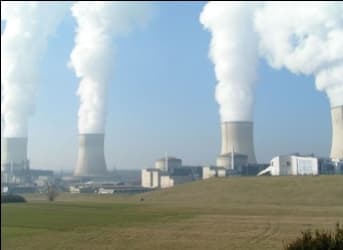It’s hard not to feel some sympathy for the Hashemite Kingdom of Jordan, situated in one of the world’s most volatile neighborhoods. Just consider its neighbors – to the west, Israel, to the east, Iraq and Saudi Arabia and to the north, Syria. Internally, the Arab Spring has produced restiveness for political reforms among Jordan’s more than six million citizens, over half of whom are displaced Palestinians. All in all, hardly a recipe for political tranquility. The CIA World Factbook sums up the situation by noting, “Jordan is a small Arab country with insufficient supplies of water, oil, and other natural resources.”
Compounding the Kingdom’s problems is a lack of indigenous energy sources, forcing it to rely on costly imports. Prior to the U.S.-led Operation Iraqi Freedom, Jordan imported most of its oil from Iraq, but the toppling of Saddam Hussein forced Amman to look farther afield to other Persian Gulf nations. Worsening the situation for the average Jordanian, in 2008 the government ended subsidies for petroleum and other consumer goods in an effort to control the budget and secure international loans and funding. With an official unemployment rate of 13 percent and an unofficial one of roughly 30 percent, providing inexpensive regular supplies of gasoline and electricity is one of the government’s best hedges against social unrest.
Related article: Japanese Political Elite Divided over Country’s Nuclear Future
The U.S. government’s Energy Information Administration’s “Country Analysis Brief” on Jordan notes, “Government statistics indicate that in 2011 the use of oil and oil products accounted for over 80 percent of Jordan's total primary energy demand, but that domestic sources of oil and natural gas met just 3 percent of that demand. Jordan is pursuing several pipeline deals, notably with Iraq, to help bolster its energy security. One proposal would send Iraqi oil from the area around Basra to the Jordanian port of Aqaba on the Red Sea. If constructed, the pipeline would initially carry up to 1 million barrels per day, with over 100,000 bpd available for use inside Jordan. The plan also calls for a natural gas pipeline to run along the same route as the oil pipeline, with up to 100 million cubic feet per day being allocated to help meet Jordanian demand.
The Iraq-Jordan natural gas pipeline would be of particular importance, as in 2010 Jordan imported 90 billion cubic feet of natural gas, primarily from Egypt via the Arab Gas Pipeline before unrest in Egypt the following year slashed imports to 29 bcf before the pipeline was closed altogether. Jordanian Minister of Energy and Mineral Resources Mohamed Hamed stated that by the end of this year, the kingdom's losses from the suspension of Egyptian natural gas deliveries would amount to $5.24 billion.
Seeking a way out of its energy conundrum, Jordan has decided to go nuclear.
It is not a new decision - beginning in 2004 the Jordanian government began studying the Kingdom’s options to meet its rising energy needs, with nuclear power as one of the possibilities. Three years later King Abdullah II stated that Jordan was “looking at nuclear power for peaceful and energy purposes” and by the end of 2007 the government issued a revised and updated National Master Strategy of Energy, which called for six percent of Jordan’s electrical output to come from nuclear power by 2020. In September 2011 the Jordan Atomic Energy Commission (JAEC) issued a “White Paper on Nuclear Energy in Jordan” describing the results of a pre-feasibility study and further elaborating a national policy rationale for nuclear energy.
So, where are these nuclear reactors going to come from?
Russia.
On 28 October the Jordanian government announced that it had selected Russian state-owned firm Rosatom as its preferred vendor to construct two 1,000-megawatt nuclear power plants east of the capital Amman, with groundbreaking to begin in 2015 and the NPPs to come online by 2022 in a deal worth $10 billion.
Related article: Nuclear Power Gets Hope from New Radiation Data
Rosatom’s subsidiary Atomstroiekhsport beat out a Japanese-French consortium of Mistubishshi Heavy Industries-Areva.
Jordan Atomic Energy Commission Chairman Khaled Toukan said during a press conference, “We have entered the second stage of negotiations with Rosatom, which we hope will lead to a final agreement and secure the country’s energy future.”
In the most interesting part of the deal, aside from reviving Atomstroiekhsport’s flagging revenues is the fact that Atomstroiekhsport will own 49 percent of the NPPs and the Jordanian government 51 percent.
ADVERTISEMENT
As witnessed by Russia’s tenacity in building Iran’s Bushehr NPP, Moscow has the determination to see through projects in a rather volatile part of the world.
And a possible side effect of the Jordanian venture is that, as Atomstroiekhsport is a state entity, the Kremlin might further exert itself in securing Middle East peace so as to protect its investment.
Only time will tell - but the Kremlin did manage to shield Damascus from a barrage of cruise missiles.
By. John C.K Daly of Oilprice.com

















